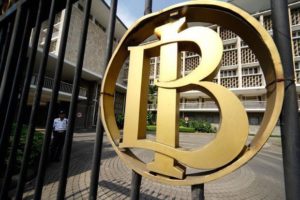Jakarta, MINA — Bank Indonesia Governor (BI) Perry Warjiyo revealed that external economic pressures that had reduced the rupiah exchange rate throughout the year would subside by 2019.
Warjiyo, at a meeting with the House of Representatives` (DPR`s) Budget Body in Jakarta on Tuesday, revealed that the US dollar`s strength would still affect the value of the rupiah in the last three months of the year.
This is due to market expectations regarding the US Federal Reserve Bank, which will raise its benchmark interest rates in September and October 2018.
Also Read: Saudi Arabia Wins Bid to Host World Expo 2030
“But because the Fed`s benchmark interest rate increase is lower in 2019, the pressure on the exchange rate will not be as heavy as this year,” Warjiyo stated.
In addition to the normalization of the Fed`s monetary policy, the dynamics of the global trade war initiated by US President Donald Trump`s policies will also weaken the currencies of developing countries, including Indonesia. The domestic financial market is still vulnerable to negative external sentiment due to foreign ownership of domestic financial instruments, including government securities that are still quite large.
This year, the Central Bank is expecting the Fed to raise its benchmark interest rate four times. An increase in the interest rate policy has been made twice by the Fed in March 2018 and June 2018. There are still two more times when the Fed`s benchmark interest rate will increase from the current level at 1.75 to 2 percent.
Warjiyo remarked that the rupiah depreciation throughout the year was at 7.8 percent (year to date / ytd). However, the weakening rate is still far better than those of countries with similar economic capacity, such as Indian Rupee, which weakened 10.3 percent; South African Rand, which fell 15.9 percent; Brazilian Real, which fell 20 percent; and Turkish Lira, which fell 42 percent.
Also Read: 148 Products from Indonesia Promoted at Sarawat Superstore Jeddah
Double interventtion
The Central Bank will continue to double intervention in the foreign exchange market and Government Securities (SBN) to hold back the weakening of the rupiah, in addition to options by raising the benchmark interest rate instrument, the 7-Day Reverse Repo Rate.
“We continue to make efforts to maintain the stability of the rupiah. We have raised policy rates by 125 basis points. This is done to increase yields on domestic assets,” he explained.
Double intervention was carried out by BI by stabilizing the foreign exchange market so that liquidity was maintained and buying Government Securities (SBN) released by foreign investors in the secondary market.
Also Read: Packaging Industry Supports Halal Ecosystem
“On Friday (Aug 31), in the SBN market, we bought Rp4.1 trillion sold by foreigners,” he noted. (T/RS5/RS1)
Mi’raj Islamic News Agency (MINA)
Also Read: Indonesia-Japan Agree on Energy Transition Cooperation


































 Mina Indonesia
Mina Indonesia Mina Arabic
Mina Arabic